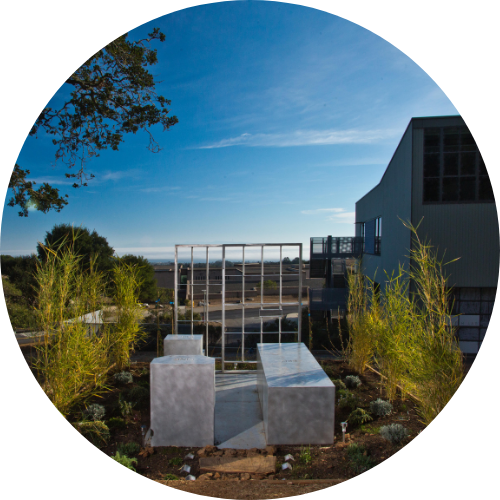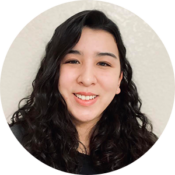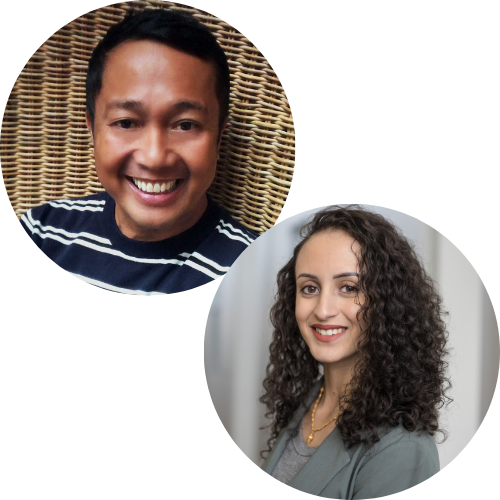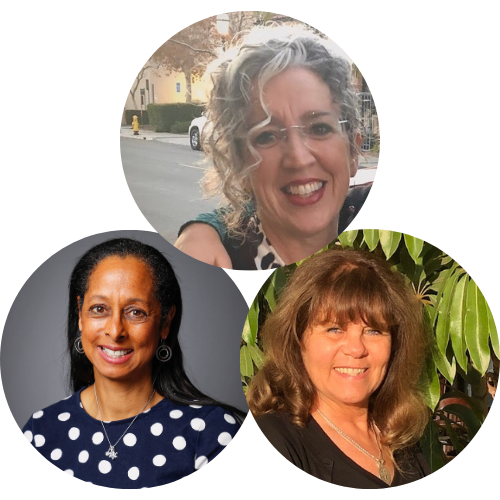Programs
2021 VOICE Recipients
PROGRAM DETAILS
In 2021, the Center’s VOICE Initiative focused on the theme of “Breaking Barriers” in campus expression and engagement. VOICE-funded programs, activities and research identified barriers, steps that could be taken to address those barriers and how those steps help to build community.
The 2021 class showcased the creativity and diversity of perspectives, programming and research in the UC system.
Learn more about the VOICE Initiative and their projects by watching this brief video:
Civic Engagement Hackathon
Project Lead: Mansi Seth, Student, Bachelor of Arts
Known for its history of campus activism, Berkeley students often engage in politics by demonstrating and organizing protests for various causes. However, an unfortunate exception to this tradition of activism is the STEM community on campus. As is the case at many other colleges across the country, UC Berkeley STEM majors infrequently vote and participate in politics. Berkeley’s 2018 NSLVE report highlighted a significantly lower voter turnout rate among STEM majors compared to their social sciences and humanities peers.
The Civic Engagement Hackathon is the first step towards addressing this disparity. Participants will work on a project that addresses a civic or voting-related problem over the 48-hour event. The final product can be anything from a mobile application or video game to a website or data visualization — the possibilities are endless. Whereas previous outreach events have been more generalized towards all students, the hackathon will tap into the interests of the STEM community and help involve them in civics.
Davis Journal of Legal Studies
Project Lead: Emma Tolliver, Undergrad Student, College of Letters and Science: English and Political Science - Public Service
Davis Journal of Legal Studies (DJLS) is an interdisciplinary, undergraduate academic journal. Modeled after law reviews, DJLS was created to provide undergraduate students the opportunity to write, edit, and publish research pertaining to legal studies and law. The goal of DJLS is to advance legal discourse through public scholarship and empower undergraduate students by promoting and publishing their research.

Estamos Aquí
UC Davis
Estamos Aquí
Project Lead: Alexandra Colón-Rodríguez, Postdoctoral scientist, Department of Neurobiology, Physiology and Behavior; Director, SciComm Faculty Training Program at UC Davis
This project will be a virtual event that aims to empower and celebrate the Latinx community. This event will be composed of four workshops focused on teaching tools for effective communication, mentoring for retention and success, leadership, and a fair showcasing internship and professional opportunities at UC Davis for students and postdocs. This event will take place during Hispanic Heritage Month (September 15th – October 15th).

Sustained Dialogue for Community Building and Conflict Resilience
UC Davis
Sustained Dialogue for Community Building and Conflict Resilience
Project Lead: Alana (Allie) O’Brien, Undergrad Student, Sociology & Political Science
This program will equip UC Davis students with the skills to effectively participate in and moderate the process of Sustained Dialogue. Through difficult conversations around race, gender, sexuality, and more, students will learn to build relationships across identities and humanize peers with differing beliefs. Student dialogue groups will also have the opportunity to carry out projects aimed at building community, understanding, and inclusion on campus. Lastly, students will have the opportunity to participate in interpersonal conflict management training through this program.

The Unsilencing of Students: Examining the Influence of Students of Color Voices in Transforming Professional Development & Pedagogy
UC Irvine
Read Report
The Unsilencing of Students: Examining the Influence of Students of Color Voices in Transforming Professional Development & Pedagogy
Project Lead: Khamia Powell, Grad Student, Education
The goal of this study is to elevate students of color’s voices to illuminate their lived experiences in schools. Their words are vital in shedding light on the educational, social, political, and racial inequities embedded within classrooms. By leveraging students’ voices and perspectives, this research uniquely identifies what is necessary for educators to become culturally responsive and create identity-safe spaces where students of color can thrive and succeed to their fullest potential. The students of color involved in the focus group will develop a sense of community as they openly discuss their unique experiences, engage in critical conversations, and use their talents to express themselves creatively through multimedia artifacts. This space is not only a community, but also a safe space to hone skills related to youth participatory action research, leadership, and advocacy. This phase of the study seeks to highlight their voices and lived experiences to inform the meticulous creation of a professional development, for their teachers. In the final phase, teachers will participate in a transformative, 8-week professional development centered on themes articulated by their students of color. Ultimately, this research seeks to determine if this highly contextualized professional development, grounded in students of color voices, has the capacity to inspire the enactment of more culturally responsive pedagogy.
Complete Countdown to 2030
Project Lead: Michael McCormack, Leadership Development Coordinator/ UCLA Residential Life
The census provides a snapshot of who is (in) America. As we wrestle with what the American identity is, a complete and accurate census count gives us crucial insight. Students, especially from hard-to-count communities, serve as translators towards institutional trust and fuller participation in the census. “Complete Countdown to 2030” will reflect on the 2020 decennial census complete count efforts at the University of California Los Angeles, in light of a presidential election year marked by the COVID-19 pandemic, racial justice reckoning, and other “unprecedented moments.” Funds will be used primarily towards a student internship, to encourage continued civic development among students. As part of our project, we will create a digital time capsule (and a real one for a residence hall opening) to be opened in 2030, as a way to galvanize for a complete count for the next decennial census.
The Politics of the Professoriate: A Social Media Approach
Project Lead: Nicholas Havey, Grad Student, PhD, Higher Education and Organizational Change
The goal of this research study is to provide a comprehensive, accurate, and contemporary assessment of the political diversity of the professoriate by creating a nationally representative dataset of faculty members across institutional types, regions, fields, and tenure status and matching that data with in situ point estimates of each professor’s political ideology based on their publicly available social media activity. This dataset will not only provide ample data for analyses regarding political diversity by variables like field and institutional type, it will also provide continuous and relational estimates of political ideology that offer greater nuance than self-reported survey items with the overall goal of accurately assessing the political diversity of the contemporary professoriate.
Dialogues That Matter
Project Lead: Onar Primitivo, Executive Director of Equity & Justice; Hala Alnagar, M.A., Ph.D. Candidate | Sociology, Graduate Student Researcher | Office of Equity, Diversity, and Inclusion
Explores emerging issues impacting the campus, local, national and global communities by inviting guest speakers to address the topic(s) and engages the UC Merced/Merced communities. Dialogues that Matter will operate in a workshop-setting to provide our campus community members with the tools necessary to navigate difficult conversations.

Informadxs: Understanding Science en español
UC Riverside
Informadxs: Understanding Science en español
Project Leads: Covadonga Lamar Prieto, Associate Professor, Hispanic Studies, and Laura V. Sales, Associate Professor
When we talk about free speech, it is not frequent to assume that the language of that speech could be different from English. A great deal of these conversations happen in circles in which there is not a clear understanding of the difference between “América” and “the US” in Spanish language. While we make efforts to increase the opportunities for civil and constructive conversation, we are involuntarily setting aside a third of the population of California, and approximately 1 in 7 individuals in the US. Our next generation of civic leaders are now in our classrooms, and it is our responsibility to make fact-based information available for them.
There is a dire need to break the barrier between scientific knowledge produced in colleges and universities and the general public. At the same time, researchers in colleges and universities need to be embedded in the communities that they serve in a way that informs their research agenda. Science, and knowledge, will not be respected in the communities that support us if we, as academics, do not show the same respect to those communities. Our short-term objective is to break barriers of language, of academic discipline, of educational levels, and that those conversations contribute to create a better informed, more free, more civic society.
Our proposal aims to knit these strands together to create a stronger and more informed foundation for civic discussion. We propose a series of talks en español (in Spanish) from researchers that approach different scientific topics: from the creation of galaxies to the decolonization of the archives, and everything in between.
Inspiring R’ Leaders Conference: Civic Action
Project Lead: Gerardo Medina, Coordinator, Leadership and Service Programs, Office of Student Life
The Inspiring R’ Leaders Conference is an annual program hosted by the Office of Student Life at UC Riverside. Every year, the conference serves as an anchor for the events organized by the Leadership and Service Programs area within the Office of Student Life. The conference sets the trend for the year, and its theme is reflected in other program offerings. For the 2021-2022 academic year, the Conference—scheduled for Fall 2021 and funded by the VOICE grant—will have a theme focused on civic engagement. All of the speakers, workshops and activities provided at the conference will be aimed at strengthening students’ understanding of what civic engagement is and how they can take part in the work. Though planning for the conference will commence in Summer 2021, one of the early goals of the conference is to help all students development an individual commitment and action plan for how they can become civically engaged.
The Patriotism Project
Project Lead: Georgia Warnke, Distinguished Professor, Political Science and Director, Center for Ideas and Society
Led by the Center for Ideas and Society at the University of California, Riverside and in partnership with the UCR Palm Desert Center and the Osher Lifelong Learning Institute at UCR Extension, the Patriotism Project engages UCR and the Inland Southern California community in a sustained discussion of American patriotism in the 21st century. What does love for one’s country mean in a society that honors pluralism and values free speech and individual expression? How deep is the divide between the patriotism of the right and the patriotism of the left? Does patriotism require whitewashing the racism, imperialism and xenophobia in much of U.S. history? Can or should one “love” America in the face of economic inequality, police brutality and civil unrest? The project hosts a series of moderated community conversations exploring the meanings of patriotism and culminating in an author’s talk and discussion with Steven B. Smith of his new book, Reclaiming Patriotism in an Age of Extremes.

Finding My Civic Ethos
UC San Diego
Finding My Civic Ethos
Project Lead: Heather Belk, Director of Associated Students Administration/Associated Students/Student Life
A Certificate Program for first year students guided by AAC&U’s Civic Engagement Values Rubric. Students who participate will experience both in class and extra-curricular opportunities crafted with the intent of moving students growth forward in the following areas:
- Diversity of Communities and Cultures
- Analysis of Knowledge
- Civic Identity and Commitment
- Civic Communication
- Civic Action and Reflection
Open Dyalog
Project Lead: Allyson Bradley, Undergrad Student, Anthropology
Open Dyalog is an organization that seeks to dismantle polarizing arguments and replace them with productive and healthy discourse in a world of limiting free speech. We provide a space for individuals to express themselves, learn about other experiences, and actively listen to others. As an organization, we routinely educate and train others to develop the skills necessary to facilitate honest and open conversations.
Restorative Justice Practices: Building Community and Repairing Harm
Project Lead: Maria Jaochico, Director, Student Rights and Responsibilities, Student Life
Restorative justice practices (RJP) are philosophical and humanizing approaches that focus on building relationships, repairing harm, make things right, and restoring the community. Incorporating restorative practices into our communities at UCSF helps create safer spaces for people to be brave and vulnerable in an open dialogue that facilitates healing. RJP encourages people to speak and listen from the heart, allowing for the utmost consideration and respect for each other. The restorative circle process provides opportunities for participants to share their feelings, build relationships, and solve problems together. When there is wrongdoing, RJP plays an active role in addressing the harm and make things right. To meet the growing needs of our communities, more circle keeper training is required. Circle keepers are RJP facilitators that guide our circle offerings.
Circle Offerings:
1. A Community Circle is an approach to community building that creates a safe space for participants with varying values, experiences, and backgrounds to discuss a particular topic.
2. A Restorative Circle is an approach to repairing harm that has been done within a community. Participants in a restorative circle are encouraged to be open and honest about their perspectives regarding a conflict, how they have been harmed, how they think others might have been harmed, and solutions on how to fix the harm created.
3. A Restorative Justice Conference is an opportunity for an individual to take responsibility and expresses remorse about the impact they had on other community members and to voice their desire to repair any harm caused.
Civic Engagement Scholars Program
Project Lead: Katya Armistead, Assistant Vice Chancellor and Dean of Student Life; Maeve Devoy, Associate Director, Walter H. Capps Center for the Study of Ethics, Religion, and Public Life; and Viviana Marsano, Civic and Community Engagement Isla Vista Liaison and Senior Advisor to Campus Organizations
The Civic Engagement Scholars Program is a collaborative effort between the Walter H. Capps Center for the Study of Ethics, Religion, and Public Life; the Dean of Students Office; Civic and Community Engagement, and the Office of Student Engagement and Leadership (SEAL). The Civic Engagement Scholars Program fosters ideals of active citizenship among our undergraduate and graduate students, engaging the next generation of leaders on issues that are of import to our campus and to the surrounding communities of Isla Vista, Goleta, and Santa Barbara. We create alliances with leaders and organizations in those communities to provide students with opportunities to develop their leadership and organizing skills and to affect measurable, positive change.
Envirosations
Project Lead: Hannah Dayton, Undergrad Student, Film and Media Studies; Elizabeth Mau, Undergrad Student, Environmental Studies
This podcasting platform serves to discuss the intersection between environmentalism and social justice. On this show, we will have conversations with environmental activists and explore environmentalism through their eyes. This interview-style podcast will explore topics including pathways to environmentalism, underrepresented voices in the field, and how to sustain activist work. We look forward to welcoming you into the Envirosations community and creating space with our guests and listeners.
Tune in to the "Envirosations" podcast.

Neoliberalism, State Divestment, and the Future of the UC System
UC Santa Barbara
Neoliberalism, State Divestment, and the Future of the UC System
Project Lead: James Ferraro, Undergrad Student, B.A. History '21
This project sets out to investigate the historical trends of the University of California's financial structure and the implications that Neoliberal political regimes carry for the possibility of free and open discourse. From Reagan's implementation of tution model in the 70s, to the current paradigm of yearly battles over tuition increases, we will cover the history, politics, and economics that has brought us to the current crisis. We will also examine how the continued reliance on a tuition model of funding has changed the dynamics of public higher education in California. Our research will culminate in a website and podcast series that are intended as resources for advocates of the university system and its workers, students and faculty.

Art, Prisons, and the University: Creating a Culture of Inclusivity for Formerly Incarcerated Students
UC Santa Cruz
Watch
Read Report
View Broadsheet
Art, Prisons, and the University: Creating a Culture of Inclusivity for Formerly Incarcerated Students
Project Lead: Rachel Nelson, PhD, Director, Institute of the Arts and Sciences; Louise Leong, Gallery Manager and Museum Preparator, Mary Porter Sesnon Art Gallery
"Art, Prisons, and the University” is a project to promote and bring visibility to the work of the Underground Scholars (US), a University of California-wide initiative aimed at supporting formerly incarcerated students and other system impacted students. To generate awareness about challenges these students face—and also to create a sense of belonging—the Institute of the Arts and Sciences (IAS) and Mary Porter Sesnon Art Gallery will host two public online events with the members of the Underground Scholars. The students and artist will speak about the roles of the university in struggles to end mass incarceration, particularly addressing how they are working to create what they call “the prison to university pipeline.” The importance of art and culture in creating an inclusive university environment will also be a subject of discussion. Additionally, a broadsheet created by members of the Underground Scholars, in collaboration with award-winning artist Ashley Hunt, create a broadsheet about the relationships between the university and the carceral state, will be printed and distributed.
Learning Stories
Project Lead: Andrea Cohen, Special Assistant to the Vice Provost for Academic Affairs, and Carmen Robinson, Director, Student Excellence, Engagement, and Inclusion, Baskin Engineering
Through a faculty and staff dialogue series on universal design, design thinking, understanding neurodiversity, student accommodations, inclusive language, and perspectives of accessibility from people with disabilities, this project will increase understanding and focus on accessible programs within the School of Engineering. The series will facilitate conversation and share with faculty and staff practical innovative tools and solutions for immediate implementation.
We Belong: Transformative Literacies for Civic Engagement
Project Lead: Sheeva Sabati, Director and Community Liaison, Oakes Community-based Action Research and Advocacy (CARA) Program
We Belong is a Community Initiated Student Engaged Research (CISER) project that aims to understand how documentation status impacts immigrant families' abilities to access services, create community, and thrive. Over 250 undergraduates, in collaboration with local high school youth, have collected more than 125 in-depth interviews with mixed-status families and service providers.
The VOICE Initiative supports a collaboration between We Belong and Oakes College's Community-based Action Research and Advocacy or CARA program. Through the Oakes CARA course Transformative Literacies, students will learn how to communicate research in ways that are accessible, meaningful and engaging. Students will also collaborate with local youth and community organizations to organize, promote, and facilitate a community-event where the research will be shared. The event will engage students, elected leaders and service providers in a collective dialogue of the research findings towards identifying an actionable policy agenda. The event will also build capacity and facilitate civic engagement for members of our student and campus community whose needs and experiences are otherwise not given voice in local policy contexts.














